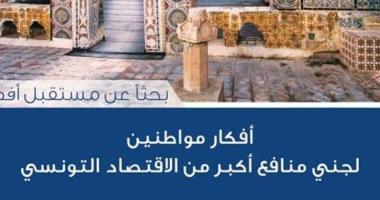The National Democratic Institute for International Affairs (NDI) is a nonprofit, nonpartisan, nongovernmental organization working since 1983 to support and strengthen democratic institutions through citizen participation, openness and accountability in government. It uses a multinational approach, with 96 nationalities represented in its staff, that reinforces the message that while there is no single democratic model, certain core principles are shared by all democracies. NDI has been working in more than 130 countries since its founding.
NDI is actively supporting Tunisia’s transition to democracy by:
Assisting political parties:
- Assisting political party leaders and members to develop strong, decentralized organizations in which party branches play a key role in representing citizen concerns in the policymaking process;
- Providing training and technical consultations on campaign skills to candidates and organizers to foster more responsive campaigns and party platforms;
- Strengthening the capacities of parties to engage citizens in preparation for municipal elections through training party representatives on organizing, outreach, and policymaking skills.
Working with Members of Parliament and the ARP:
- Strengthening MPs’ and parliamentary groups’ capacity to perform their legislative, representative, and oversight roles;
- Providing technical support to parliamentary commissions to analyze legislation;
- Boosting parliamentary communication and outreach to citizens to increase transparency and inclusion;
- Convening women MPs in multi-party settings to raise awareness of gender-based issues, identify areas of common concern, and develop options to collectively address them.
Providing qualitative/quantitative public opinion research findings:
- Done the first-ever public opinion survey of Tunisian women’s views on a wide range of public policy issues;
- Conducting regular focus group research to identify issues of concern to Tunisian citizens and shares the findings with parliamentarians, political parties, and other stakeholders to promote more responsive policies.
- Conducting introspective focus group researches targeting active women in politics to deduce their experiences with violence and to stop this phenomenon in the frame of NDI’s pilot project in Tunisia #Not the Cost. .
Strengthening Tunisian civil society organizations:
- Building the internal capacities of civil society groups to organize and communicate effectively;
- Initiating civil society oversight of healthcare and other public services;
- Working with CSOs to advocate for women and youth inclusion and participation in national policy making;
- Supporting CSOs to engage citizens and political party activists around citizens’ policy priorities in advance of the municipal elections;
- Developing CSOs’ tools and strategies to monitor full-cycle electoral processes, coordinate observation efforts, and effectively communicate findings with the public.
Prior to the 2011 uprising, NDI led programs to strengthen parties as proponents of a more open political system, to engage Tunisian activists in international exchanges and networks promoting transparent and responsive governance and institutions, and to increase the capacity of independent civil society groups advocating for greater participation. Since 2011, NDI has supported partners through major milestones in Tunisia’s democratic transition, including the October 2011 elections for a National Constituent Assembly, which drafted the country’s new constitution, and the 2014 elections that elected Tunisia’s first freely-elected president and parliament. Key accomplishments of NDI’s work have included:
- Trained 540 candidates, of whom 55 % were women, from across the political spectrum for the 2014 elections;
- Trained 436 party poll watcher trainers from six parties who trained fellow party members around the country;
- Supported CSO Mourakiboun in conducting the first ever parallel vote tabulation (PVT) in the MENA region in 2014;
- Trained more than 4,000 domestic election observers around the 2014 elections;
- Conducted comprehensive international election observation missions for the 2011 and 2014 elections;
- Supported civil society organizations in voter education activities that reached over 1,525 participants, including almost 900 women across the country;
- Assisted political parties in building internal structures and communication channels, improving policy and message development skills, and enhancing campaign and management skills, with a special focus on women candidates;
- Regularly conducted public opinion research, sharing findings with political parties and officials to assist them in responding to citizens’ priorities;
- Supported women and youth to advocate within their parties and to create women and youth wings.
For practical resources and more information, visit:
- Taalamsharek.org, an online Arabic learning and training center that allows users to use a range of self-guided resources to build civic and political skills on topics such as campaign planning, elections, citizen participation, governance, and political party development.
- Arabicpublicationscenter.org, hosting the products of NDI’s Arabic Publications Center, the world’s largest publisher of Arabic-language democracy-related resources and reference materials;
- Also visit our general website at ndi.org or NDI Tunisia page at www.ndi.org/tunisia.

